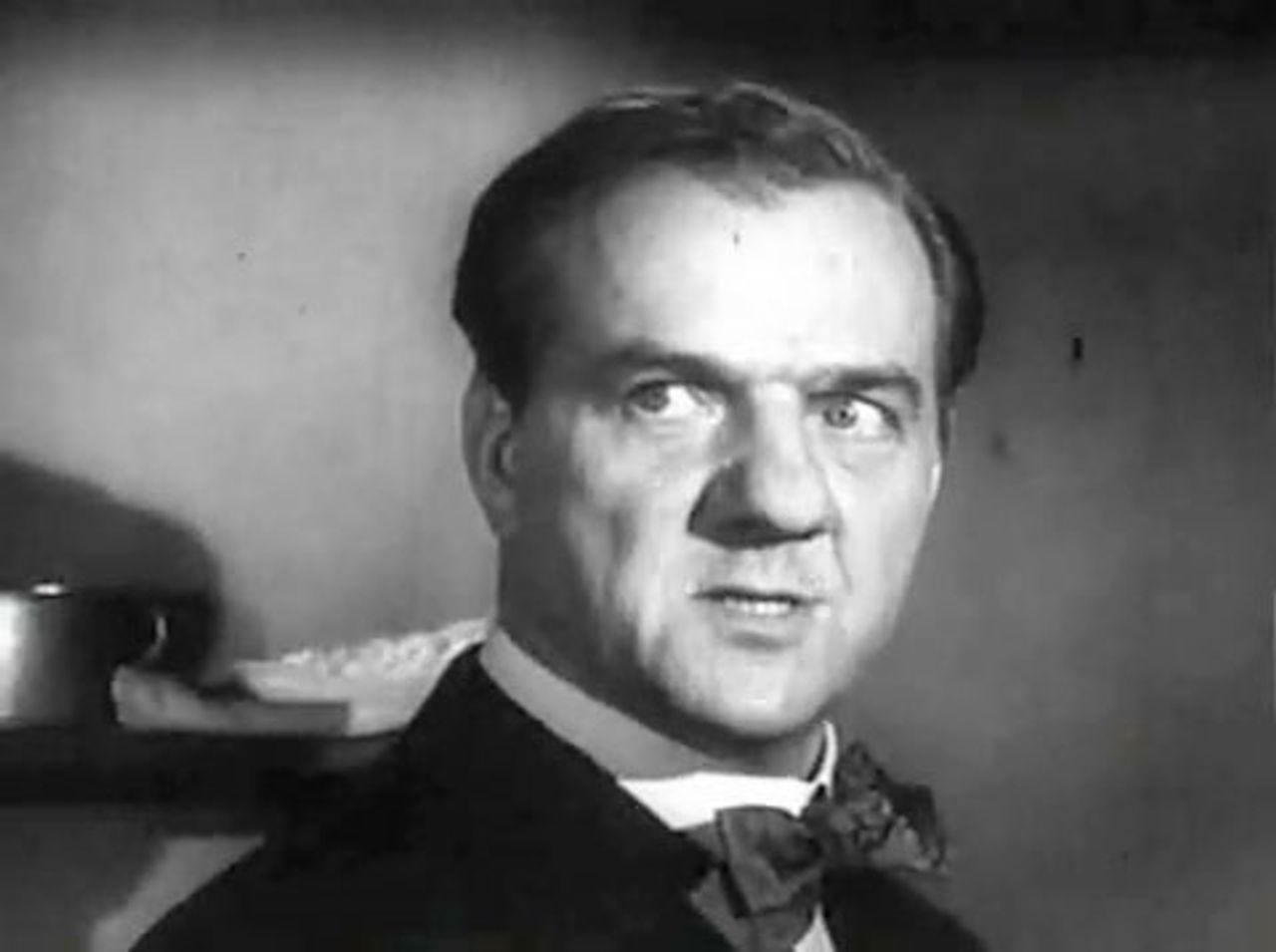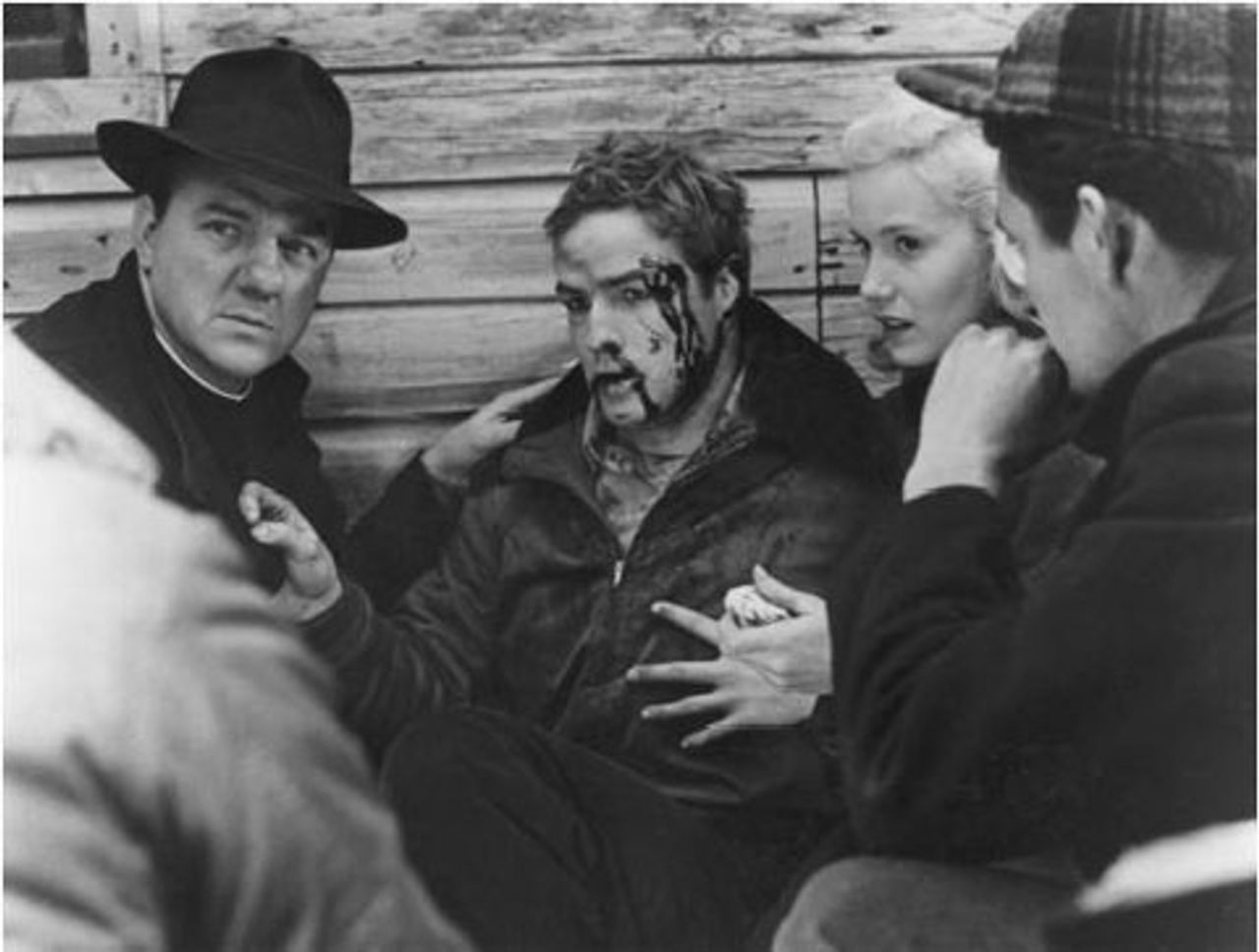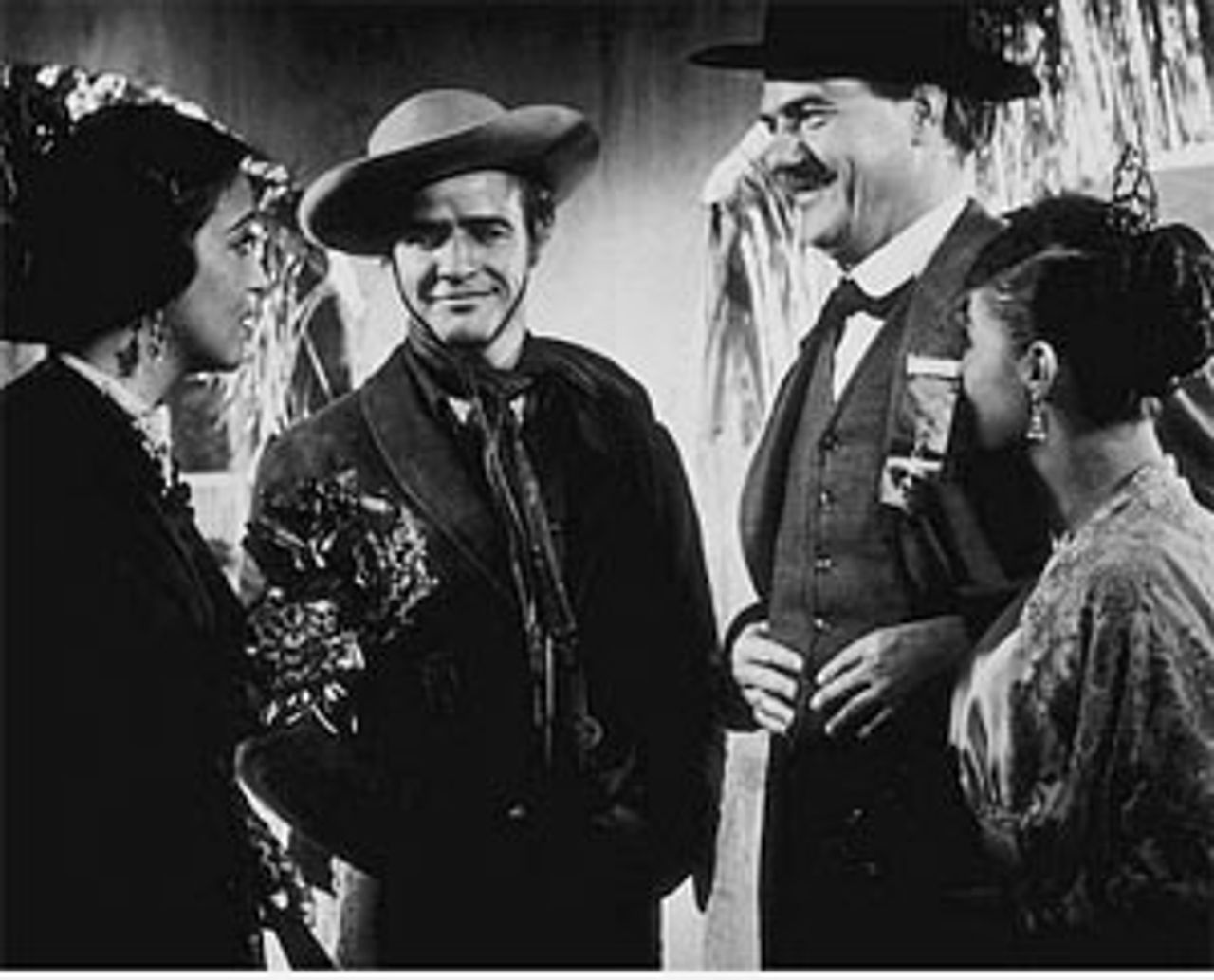Assessing the career of a performer, especially one as lengthy and complicated as Karl Malden’s, is not an easy matter. Malden, who died in Los Angeles July 1, first made his name in the New York theater as part of a generally left-wing group of writers, directors and performers and later enjoyed a long career in Hollywood extending from the postwar years to the early 1970s. He most famously worked with Elia Kazan and Marlon Brando in A Streetcar Named Desire (1951) and On the Waterfront (1954), with Brando again as a fellow actor and director in One-Eyed Jacks (1961), and with Burt Lancaster and John Frankenheimer in Birdman of Alcatraz (1962).
 Karl Malden in The Bird Man of Alcatraz
Karl Malden in The Bird Man of AlcatrazIn addition to Kazan, Brando and Frankenheimer, Malden was directed in significant roles at various points in his career by Henry Hathaway, Henry King, Otto Preminger, King Vidor, Alfred Hitchcock, Robert Mulligan, Mervyn LeRoy, John Ford, Norman Jewison, Richard Quine, Ken Russell and Franklin J. Schaffner—a list that includes some of the most interesting directors of the postwar period. He supported and often combated some of the leading male performers of his time: Brando, Gregory Peck, Charlton Heston, Steve McQueen, Anthony Perkins, Burt Lancaster, Terence Stamp. He also performed with or against, often unhappily, some remarkable female performers, including Vivien Leigh, Jennifer Jones, Carroll Baker, Katy Jurado, Rosalind Russell, Ann-Margret ...
Always active and energetic, Malden found a new life in the 1970s in 120 episodes of the television series “The Streets of San Francisco,” co-starring Michael Douglas, and functioned as a pitchman for American Express for 21 years.
An actor is at the mercy of numerous factors, from the most private and specific to the most general: his or her physical features, the quality of writers and directors with whom he or she works, and, certainly last but not least, the overall artistic and social atmosphere prevailing.
Malden was a serious actor, who nearly always made a strong impression. And it would be condescending, and mistaken, to suggest that he was merely competent and intelligent. He brought an intensity and depth to his best roles. He had lived and he knew something about life.
Despite that, to what does one attribute the unfavorable trace that Malden left in one’s memory in numerous roles? Perhaps he played too many priests or policemen, authority figures who pontificated in the name of establishment values in a stagnant time. Perhaps because his acting was mannered at times, stiff, even forced. But how much of that was his responsibility? Brando was Brando, and he brought something to Kazan’s films beyond that which Kazan himself had to offer. Malden seemed more tied to and to retain something of the nervous and strained element, the “edge of hysteria” that suggested a bad conscience on the director-informer’s part.
And there is a price to be paid for the terrible type-casting that goes on in studio filmmaking. Because he lacked the stereotyped "leading man" looks, Malden was fated to play the "other man" in many films, the repressive father, the betrayed or cuckolded fiancee or husband, often either the irritant or the hard-done-by. This wasn't fair, or necessary, and probably shaped Malden's acting style in its own fashion. Some of the stridency may have resulted from the seemingly unfavorable dramatic positions in which he found himself. (See his roles in both Baby Doll and The Cincinnati Kid, for example, where his characters are doomed, in humiliating fashion, emotionally and sexually.)
 With Marlon Brando and Eva Marie Saint in On the Waterfront
With Marlon Brando and Eva Marie Saint in On the WaterfrontThe Cold War era in American filmmaking had its own peculiar and debilitating contours. It cannot be accidental that, in the end, Malden will be best remembered, in my view, for the overbearing or corrupt, even sadistic, characters he played in Birdman of Alcatraz (the warden) and One-Eyed Jacks(the local sheriff). Why?
In a period in which films, at least on the surface, are obliged to prop up and generally lie about the existing social order, "positive" authority figures almost inevitably have about them an air, even if only detectable on the level of the unconscious, of something dishonest, hypocritical, essentially untrustworthy. However, when a serious actor digs in to a powerful social villain he or she often brings out, by the logic of artistic honesty, a far greater truth, something far closer to what he or she intuitively knows and understands. Then, some of the real rot and mendacity of official life emerges. (Malden also played a memorably repressive figure in Ford's Cheyenne Autumn, and a fire-and-brimstone preacher, semi-comically so, in Pollyanna.)
Malden came of age as the Great Depression hit. How could he not have been affected by the social trauma? The son of working class immigrants, his mother from Bohemia (later Czechoslovakia) and his father, a milkman, from Serbia, Malden moved with his parents from Chicago to Gary, Indiana when he was five. After high school, he worked in Gary’s steel mills for three years, before going to acting school in Chicago and heading for New York City in 1937, debuting that year in Clifford Odets’s boxing drama, Golden Boy.
What were Malden’s social views? We don’t know. He joined up with the Group Theater in New York City in the 1930s, nearly all of whose members were left-wing, many of them briefly or otherwise members of the Communist Party (and, among them, various future informers or blacklistees). Included in the Group were Kazan, Odets, John Garfield, Franchot Tone, Marc Blitzstein, Lee J. Cobb, Stella Adler, Will Geer, Howard Da Silva, John Randolph and many others.
Presumably Malden was never a Communist Party member; at any rate, he was never called on publicly to testify or denounce his former comrades, like Kazan and Cobb.
It is entirely possible that the state of society never meant that much to him. Would we hold that against him? This brings us back to the complex question of the relation between the depth of an artist and his or her grasp of the world. If a Brando or a Garfield (who emerged from some of the same artistic schools) seemed more profound than Malden, was that simply a matter of greater innate talent, or spontaneity, on their parts, or even, as suggested above, the limitations of the "character actor" category, on Malden's? Might it not also have something to do with a greater, more burning sense of injustice and outrage, an inability, in the end, even to accommodate oneself to the state of things as they were? It is difficult to say.
 With Katy Jurado, Marlon Brando and Pina Pellicer in
With Katy Jurado, Marlon Brando and Pina Pellicer in One-Eyed Jacks
One of Malden’s greatest roles came under Brando’s direction in One-Eyed Jacks, a much underrated film. Too long, at times self-indulgent, the work is nonetheless fascinating. First of all, there is the remarkable collection of actors: Brando, Malden, Jurado, Pina Pellicer, Ben Johnson, Timothy Carey, Slim Pickens and Elisha Cook Jr., among the best known. It is an indisputably left-wing film, made only years after the end of the blacklist and the witch-hunts, which takes aim at authority, racism and oppression of every kind.
The Freudian-Oedipal element is presented somewhat heavy-handedly (Malden plays the brutal Sheriff Dad Longworth to Brando's Rio, known as "Kid"), but sympathy for the downtrodden is all-pervasive, even if the filmmakers work at it a bit too strenuously.
One-Eyed Jacks was based on a novel by Charles Neider that retold the Billy the Kid saga. The movie retains very little of the original. Who was responsible for the script? There is some controversy about that. The screenplay is credited to Calder Willingham, the writer who spent time on the Left in New York in the late 1940s, and Guy Trosper. Malden credited the script to Brando, whom he called a “genius.”
In any event, there is a certain amount of irony in the production, which may or may not have passed Malden by. His and Brando's most recent film collaboration, of course, had been in On the Waterfront, in which Kazan and screenwriter Budd Schulberg attempted to defend their perfidious and cowardly conduct during the anti-communist purges. Brando claimed not to have known at the time that this was the underlying theme of the work.
He certainly had figured it out by 1961. Although One-Eyed Jacks does not treat informing as such, it is very much a film about the treacherous abandonment of one's former colleagues, and its implications, especially for the one who has done the abandoning. Brando's Rio is left by Malden's Dad Longworth to the tender mercy of Mexican authorities after a bank robbery, and suffers in a penal lead mine for years as a result. Whether Malden was aware he was in part bringing Brando's portrait of a man with a guilty conscience--a la Kazan—to life or not, he imparts great sincerity and conviction to the role.
 Elia Kazan
Elia KazanIn 1999, unhappily, Malden, a former president of the Academy of Motion Picture Arts and Sciences, helped spearhead the successful campaign to bestow an honorary Academy Award to Kazan. He claimed the matter was above “politics.” For Malden, it may have been. However, as we noted at the time, “In applauding Kazan the members of the Academy are applauding themselves. What are they saying? ‘In similar circumstances, we would behave in precisely the same way.’ The film industry establishment is setting up the artist-informer as a model for the present and the future.”
As a human being, by all accounts, Malden, married to the same woman for 70 years, was a principled and decent person. A former journalist in Hollywood informs us: “I always found Malden a very nice man ... He was always approachable and good for a frank quote. He didn’t exhibit any of the pomposity often seen in Hollywood—he seemed like a regular guy.”
Whatever his limitations, externally imposed or otherwise, Malden was not a lightweight figure in Hollywood. He was involved with too many serious people and too many serious projects for one to suppose it was all accidental. His best work is enduring.
